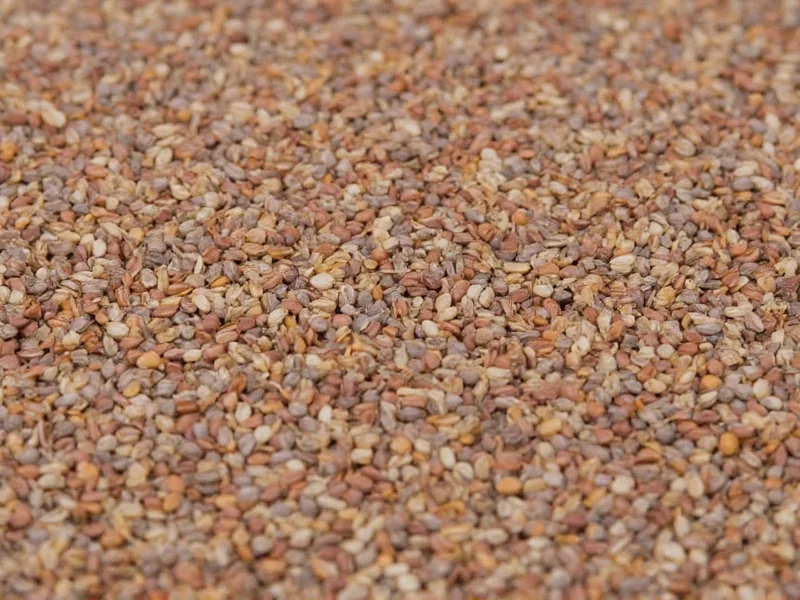Afeem seeds refer to the seeds of Cannabis sativa plants, commonly known as hemp seeds when derived from varieties with less than 0.3% THC content. These seeds contain no psychoactive compounds and are legally cultivated in many countries for nutritional, industrial, and agricultural purposes. Unlike the cannabis plant's flowers and leaves, afeem seeds cannot produce intoxicating effects and are rich in protein, healthy fats, and essential nutrients.
Understanding Afeem Seeds: Botanical Classification and Properties
Scientifically classified as Cannabis sativa L. seeds, afeem seeds originate from hemp varieties specifically bred for low tetrahydrocannabinol (THC) content. The term "afeem" appears in certain regional contexts, particularly in South Asia, though it's not the standard botanical nomenclature. These small, oval-shaped seeds measure approximately 3-5mm in length and feature a hard, mottled shell protecting the nutrient-dense kernel inside.
Hemp seed composition reveals impressive nutritional value per 100g:
| Nutrient | Amount | Health Significance |
|---|---|---|
| Protein | 31.6g | Complete protein with all nine essential amino acids |
| Omega-3 Fatty Acids | 8-10g | Supports cardiovascular and brain health |
| Dietary Fiber | 10.9g | Promotes digestive health |
| Vitamin E | 9.3mg | Powerful antioxidant properties |
| Minerals (Mg, Zn, Fe) | Varies | Essential for metabolic functions |
Legal Status of Afeem Seeds Worldwide
The legal status of afeem seeds varies significantly across jurisdictions, primarily determined by their THC content and intended use. In the United States, the 2018 Farm Bill legalized hemp cultivation containing less than 0.3% THC on a dry weight basis, making hemp seeds widely available for food and agricultural purposes. The European Union permits hemp seed cultivation under strict licensing requirements, with THC limits typically set at 0.2%.
Several important legal distinctions exist:
- Hemp seeds themselves contain negligible to zero THC and are legal in most countries
- Growing cannabis plants from seeds remains illegal in many regions without proper licensing
- Import/export regulations often require certification of THC levels
- Some countries maintain complete bans regardless of THC content
Historical and Cultural Context of Hemp Seeds
Hemp cultivation dates back at least 10,000 years, with archaeological evidence showing its use in ancient China and Mesopotamia. Historical records indicate that hemp seeds served as:
- A staple food source in many ancient civilizations
- Medicinal applications in traditional Ayurvedic and Chinese medicine
- Raw material for textiles, paper, and rope production
- Sustenance for birds and livestock in agricultural settings
The term "afeem" appears in certain South Asian linguistic contexts, though it's crucial to distinguish between traditional hemp seed usage and modern misconceptions about psychoactive properties. Historical documentation confirms that traditional preparations using hemp seeds focused exclusively on nutritional and industrial applications, not intoxication.
Practical Applications of Afeem Seeds
Modern applications of hemp seeds span multiple industries due to their versatile properties. The food industry utilizes them in various forms:
- Whole seeds added to baked goods, salads, and breakfast cereals
- Hemp seed oil extracted for culinary and cosmetic applications
- Dehulled seeds (hemp hearts) as protein-rich dietary supplements
- Plant-based milk alternatives and protein powders
Industrial applications include:
- Biofuel production from hemp seed oil
- Natural fiber production for textiles and construction materials
- Soil remediation through phytoremediation properties
- Animal feed supplementation for improved nutrition
Safety Considerations and Common Misconceptions
Despite persistent myths, afeem seeds contain no measurable THC and cannot produce psychoactive effects. Scientific analysis consistently shows that properly processed hemp seeds contain THC levels below detection limits (typically less than 0.001%). The World Health Organization confirms that Cannabis sativa seeds and their derivatives do not pose public health risks when used as food.
Common misconceptions include:
- Confusing hemp seeds with cannabis flower material
- Believing hemp seeds can trigger positive drug tests (scientifically unfounded)
- Mistaking industrial hemp for marijuana varieties
- Assuming all cannabis-related products have similar legal status
Proper storage maintains seed quality—keep in airtight containers in cool, dark places to prevent rancidity from their high oil content. Most adverse reactions stem from improper storage rather than inherent properties of the seeds themselves.
Scientific Research on Hemp Seed Benefits
Recent scientific studies validate many traditional uses of hemp seeds. Research published in the Journal of Agricultural and Food Chemistry demonstrates that hemp seed protein contains all nine essential amino acids in optimal ratios for human nutrition. Clinical trials indicate potential benefits for:
- Cardiovascular health through balanced omega-3 to omega-6 ratios
- Skin conditions like eczema due to gamma-linolenic acid content
- Digestive health from both soluble and insoluble fiber
- Immune function support through complete protein profile
A comprehensive review in Nutrition Reviews concluded that regular consumption of hemp seeds contributes to reduced inflammation markers and improved lipid profiles. Researchers emphasize that these benefits derive from the seeds' nutritional composition, not any psychoactive properties.











 浙公网安备
33010002000092号
浙公网安备
33010002000092号 浙B2-20120091-4
浙B2-20120091-4